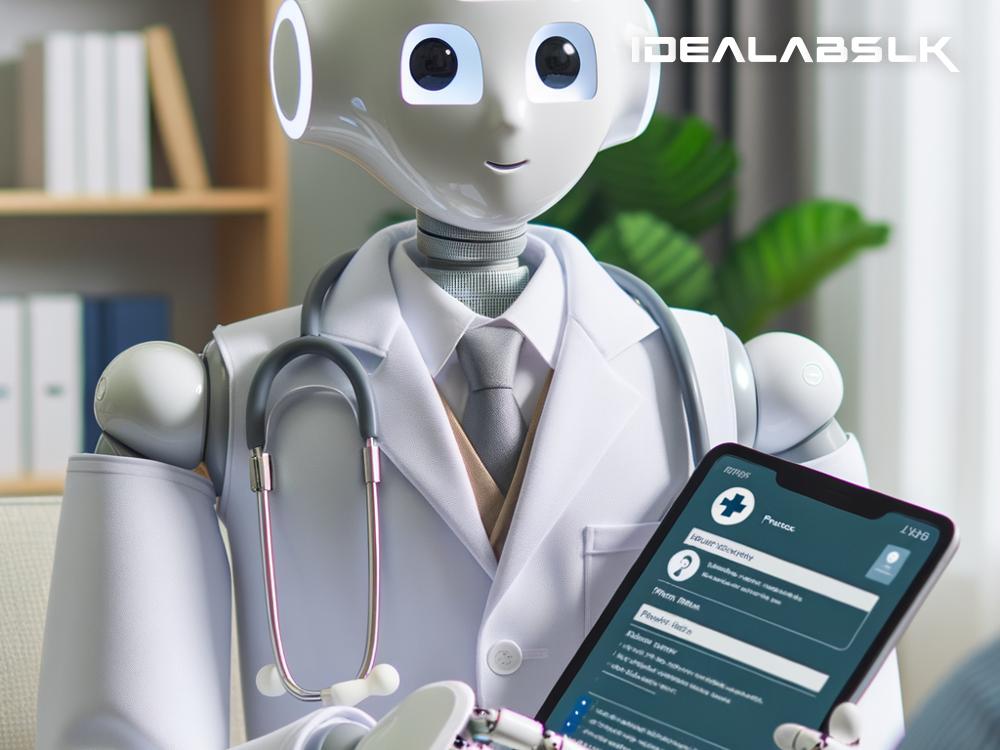How AI and Chatbots Are Enhancing Patient Experience in Healthcare
In the ever-evolving landscape of healthcare, artificial intelligence (AI) and chatbots are emerging as game-changers for improving patient engagement and satisfaction. These cutting-edge technologies are not just reshaping how patients interact with health services but are also making those interactions more meaningful, efficient, and personalized. Let's delve into how AI and chatbots are transforming patient experiences and why they are becoming indispensable tools in modern healthcare.
Breaking Down the Jargon: AI and Chatbots Explained
Before we dive into their benefits, it’s crucial to understand what AI and chatbots are. AI, or artificial intelligence, refers to computer systems or machines that mimic human intelligence to perform tasks and can improve themselves based on the information they collect. Chatbots, on the other hand, are AI-driven software applications designed to simulate conversations with human users over the internet. They understand and respond to written or spoken requests, making them perfect virtual assistants in healthcare settings.
Personalized Patient Care at Scale
One of the most significant advantages of AI and chatbots in healthcare is their ability to offer personalized care. By analyzing vast amounts of data, AI algorithms can tailor health-related advice, treatment plans, and follow-up schedules to individual patient needs. This level of personalization ensures that patients receive care that is not only effective but also aligns with their unique health preferences and lifestyle.
Chatbots, with their conversational interface, make this personalized care readily accessible. Patients can ask questions, report symptoms, or even request prescription refills anytime, anywhere, without the need for a human operator at the other end. This 24/7 availability significantly enhances patient convenience and satisfaction.
Streamlining Administrative Tasks
A considerable amount of time in healthcare settings is spent on administrative tasks—scheduling appointments, processing insurance claims, or managing patient records. AI and chatbots are making these processes more efficient. For instance, chatbots can handle appointment bookings through simple text conversations with patients, freeing up staff to focus on more critical tasks. AI algorithms efficiently manage and analyze patient data, ensuring that healthcare providers have all the necessary information at their fingertips for making informed decisions.
Bridging the Communication Gap
Effective communication is the cornerstone of high-quality healthcare. AI and chatbots are playing a crucial role in ensuring that patients have all the information they need to manage their health better. Through personalized reminders, educational content, and instant responses to queries, these technologies keep patients informed and engaged in their care journeys. They break down complex medical jargon into simple, understandable language, empowering patients to take an active role in their health.
Enhancing Remote Care and Monitoring
The COVID-19 pandemic highlighted the importance of remote healthcare services. AI and chatbots have been at the forefront of this shift, enabling patients to receive care without visiting a healthcare facility physically. Through AI-powered telehealth platforms, patients can consult with their doctors via video calls, receive diagnoses, and even have their health monitored remotely. Chatbots can triage patients based on their symptoms, directing them to the appropriate care level and reducing unnecessary hospital visits.
Improving Mental Health Support
Mental health is an area where AI and chatbots show significant promise. By providing a judgment-free zone for patients to express their feelings, these technologies are becoming a valuable support tool for those struggling with mental health issues. Chatbots tailored for mental health support can deliver cognitive behavioral therapy (CBT) exercises, meditation guides, and mood tracking features, making mental health support more accessible and less stigmatized.
The Future Looks Bright
As AI and chatbots continue to evolve, their potential in healthcare is boundless. They are not just about making healthcare more efficient; they are about making it more human. By handling the repetitive and time-consuming tasks, AI and chatbots allow healthcare professionals to dedicate more time to what they do best—caring for patients.
In conclusion, AI and chatbots are significantly improving patient engagement and satisfaction by personalizing care, streamlining administrative tasks, enhancing communication, and supporting remote care and mental health. As technology advances, the integration of AI and chatbots in healthcare will undoubtedly deepen, promising a future where patient experiences are not just improved but transformed.

